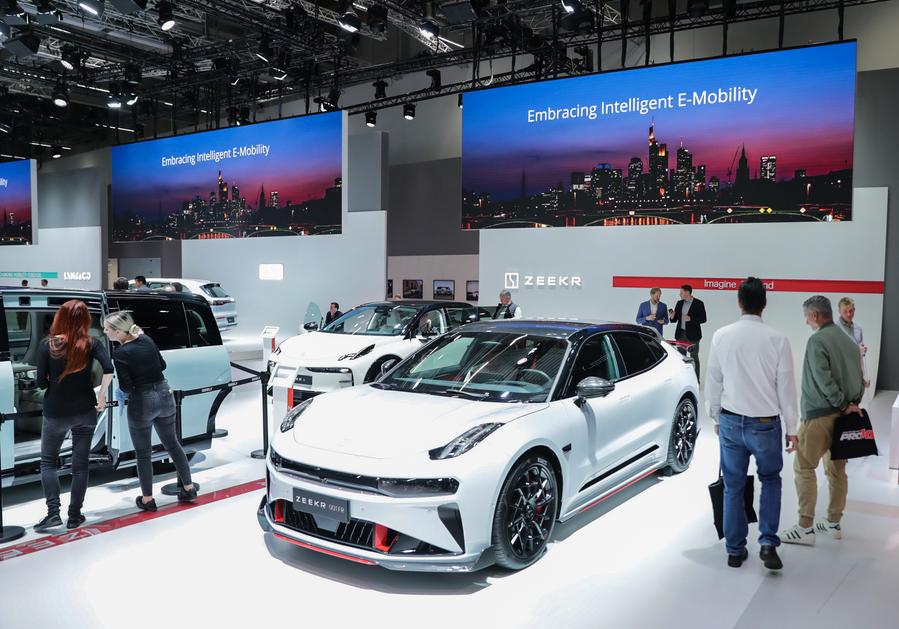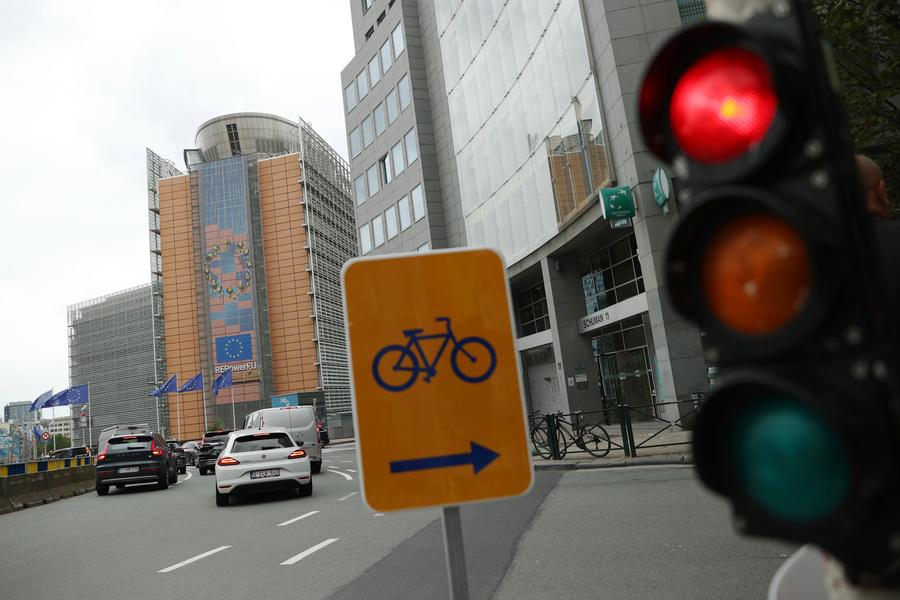
People visit the booth of Geely at the Automechanika in Frankfurt, Germany, Sept. 11, 2024.(Xinhua/Zhang Fan)
The European Commission's tariff plan has sparked concerns among industry experts and business insiders across Europe.
BERLIN, Sept. 18 (Xinhua) -- Germany's Economics Minister Robert Habeck has called for the European Union (EU) and China to reach a political solution to the issue of tariffs on electric vehicles (EVs).
"We want to avoid a trade conflict that could escalate into a tariff spiral, ultimately harming both sides," Habeck said in a statement on Tuesday, reaffirming that his stance is clear -- a political solution is essential.
Emphasizing China's significance to the German and European economies, Habeck said fair competition conditions must be guaranteed and Germany welcomes competition with China.
"The European Commission and China should work towards a negotiated solution," he added.

NIO cars are displayed in the NIO House in Oslo, capital of Norway, Sept. 30, 2021. (Xinhua/Zhu Sheng)
Habeck's statement echoes the German government's remarks at a press conference last week. A government spokesperson said that the federal government had been skeptical about the EU's proposal of EV tariffs from the beginning, and this stance remains unchanged, mentioning that Spanish Prime Minister Pedro Sanchez had called on the EU member countries and the European Commission to reconsider their position on the proposal of additional tariffs on Chinese EVs.
"We are very pleased that talks between China and the EU are continuing to prevent such tariffs," the spokesperson said, adding that it would benefit all parties if other EU member countries also recognized that tariffs are not in the best interests of their industry.

This file photo taken on June 3, 2024 shows vehicles passing by the European Commission building in Brussels, Belgium. (Xinhua/Zhao Dingzhe)
The European Commission imposed provisional additional tariffs on Chinese EV makers in July, following its so-called anti-subsidy probe on Chinese EVs launched in October 2023.
The Commission's tariff plan has sparked concerns among industry experts and business insiders across Europe. Critics argue that the move may worsen the competitiveness issues of the European Union, hinder the region's green transition and escalate trade tensions with China, instead of protecting the European auto industry as intended.




 A single purchase
A single purchase









